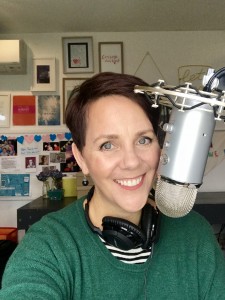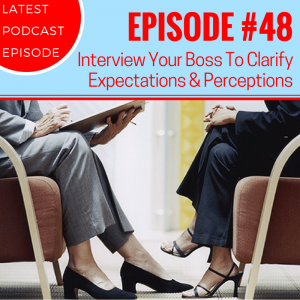Podcasts have risen to fame over the last five years, with more of us than ever downloading and listing to them. With topics that vary from showbiz news to gardening, they can be easy listening or a place to learn new information and skills.
After many hours listening to podcasts devoted to helping PAs/EAs develop their skills, PA Life staff writer Vincenzo Ferrara stumbled across a podcast called ‘Being Indispensable’.
The Australian based podcast devoted to helping assistants learn new skills has a global audience as well as playing host to well-known assistants such as Hallie Warner and Adam Fidler. The show covers a variety of topics that can develop the skills needed to advance your career as an assistant.
We contacted Liz Van Vliet, owner and host of the podcast to find out a little bit more about her and the story of why she started a podcast.
Tell us about yourself?
My full name is Elizabeth Van Vliet, I’m originally from Melbourne in Australia, and except for a couple of overseas stints, I’ve lived in Sydney since 1995.
Even though I grew up in Melbourne, I consider myself a Sydney girl at heart.
It sounds like you are pretty settled in Sydney and consider it home now?
Well my husband is Canadian, we have no relatives in Sydney, just us and our three daughters, the oldest of which has recently turned 18.
We are a very little nuclear family and just love it here.
What’s your current job title?
So, I did the EA role for just over a year and a half. I had to resign due to health issues, related to my breast cancer recovery, on the back of starting the podcast.
I had just started to build up an audience, when I found out that I would need to resign from my job due to health reasons. I really had to weigh up if I would continue with the podcast, as I felt like a fraud podcasting about being an executive assistant, even though I wasn’t going to be an EA anymore and I had only been in the job for a year and a half.
I started to get feedback from people saying ‘please don’t stop because we love what you are doing, and we love the content that you are delivering’.
The feedback from people told me that, rather than focus on the hard skills (inbox management, events, day-to-day tasks), I should cover more soft skills. This was the side of myself I felt really confident with as I had come from a career in sales and marketing. Where I picked up my communication skills, networking skills etc… These were what came naturally to me and they were the things that I could help others to develop.
I started to get invited to conferences to speak on the topic of soft skills. As that happened, I began to get more listeners, as a result of this I tailored my episodes to become more focused around soft skills.
I started getting approached to help mentor and train assistants with their careers or specific situations they were in.
Around six months after my resignation, my recovery was going well, and my health was getting better and that’s when people started to ask me a lot more about assistant specific skills.
Because I had started the podcast while doing the EA role, I learnt to appreciate how the role of an assistant really does rely strongly on what sort of communicator you are, and how effectively you can manage relationships.
It’s almost been two years since I resigned, and I have never felt more fulfilled or valued. The feedback I get from people makes me feel really appreciated about what I am doing.
What made you start podcasting in the first place?
Firstly, I’ve always loved podcasts; I started to listen to them back in the day instead of listening to the radio.
Then when I went for the EA role, I was sat in the interview with my soon-to-be boss and I told him that one of my interests was podcasting. To my surprise, this was something that he and I connected on. He was an executive coach and when I mentioned it was something I was interested in doing, he made it one of my objects to start podcasting. He saw it as something that could benefit both ourselves and the company.
I decided to learn the technical side of producing a podcast first. Once I was happy enough with that, I just went for it. It was a learning curve but I soon found a format that I liked, and the rest is history really.
If you had to pick one episode of your podcast for someone to listen to, which would you choose, and why?
I think it would have to be the episode about ‘interviewing you manager’. It’s a worthwhile skill to have and nine out of ten assistants that I have talked to have never considered interviewing their boss.
What is the best piece of advice you would give about assistant work?
Approach things with a curious mind.
What I mean by this is when you’re curious, your natural response is to be less defensive and less reactive it automatically means that you’ll be a more active listener.
How do you think technology will affect the future of assistant jobs?
I think technology is absolutely something to embrace!
I feel one of the biggest issues that I come across within the assistant world is, fear, fear of losing their jobs, fear of being displaced by technology. But, the thing that tech with never be able to do, is emotional intelligence. Technology will never be able to replace a highly skilled assistant because a great assistant has a highly cultivated level of emotional intelligence. It’s what people need to recognise as it makes them indispensable.
What does the future hold for you Liz Van Vliet?
In the next five years, I see myself continuing to train and mentor assistants in the previously mentioned areas. I would like to have developed some training programs which could be accredited by assistant associations around the world.
For more information about Liz and the ‘Being Indispensable’ podcast visit the links here:
Website: http://beingindispensable.com
Twitter: https://twitter.com/LizVeeVee
LinkedIn: https://www.linkedin.com/in/elizabethvanvliet/
Facebook: https://www.facebook.com/beingindispensable/














